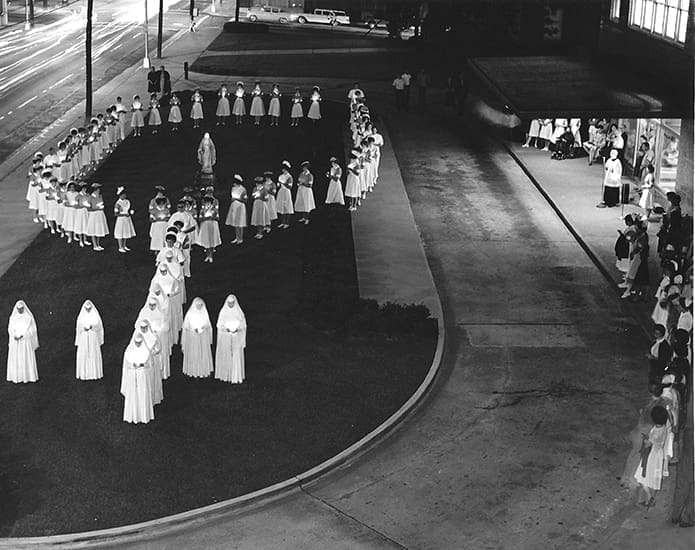
Atlanta
Looking Back: October 1963
Published October 24, 2013
The opening of the second session of the Second Vatican Council filled the pages of The Georgia Bulletin in October 1963. Pope Paul VI, elected to succeed Pope John XXIII, opened the new session, which also included more representatives from other Christian denominations. Some 60 non-Roman Catholic delegate-observers attended, including 17 from the United States.
Archbishop Paul Hallinan wrote an article for The Georgia Bulletin front page about Pope Paul’s first address to the council. “With his voice frequently breaking because of his own deep feelings, Pope Paul opened the second session of the Vatican Council II,” the archbishop wrote. “For 2,450 of us in St. Peter’s, the Pontiff chartered the course the Council would follow in our modern world.”
The archbishop’s reporting reflects the uncertainty of the moment. He continued, “The bishops’ confidence rose as the new Pope dispelled any idea that John’s Pontificate was a single shot in the dark. … There was anything but retreat in Paul’s challenge: ‘Let us, therefore, brethren, go forward.’”
Archbishop Hallinan said the pope’s discourse included words of humility to the non-Catholic observers. “If we are in any way to blame for that separation, we humbly ask God’s forgiveness.”
Archbishop Hallinan continued, saying, in his own words: “The modern world must be served and saved, not conquered or despised.”
The Council Fathers voted “overwhelmingly” on Oct. 9, 1963, to incorporate the vernacular (the language of the country) in many parts of the Mass. This vote still required the approval of Pope Paul VI to be adopted. In other debate at the Second Vatican Council, a proposal to bring back a permanent diaconate in the Catholic Church was being discussed and strongly opposed by some, including the New York prelate, Cardinal Francis Spellman. The article noted that “in the early church the diaconate was an order to which a man could aspire without intending to go on to the priesthood” and that St. Francis of Assisi was a deacon.
Blessed John Neumann was beatified on Oct. 13, 1963, the first U.S. male citizen to be declared “blessed” by the church. The fourth bishop of Philadelphia from 1852-1860 was born in Bohemia and became a pioneer priest in the United States, opening the first school for Italian immigrants in Philadelphia; a school for black children in pre-Civil War Philadelphia; and learning Gaelic to hear the confessions of Irish immigrants. It was the first beatification ceremony conducted by Pope Paul VI.